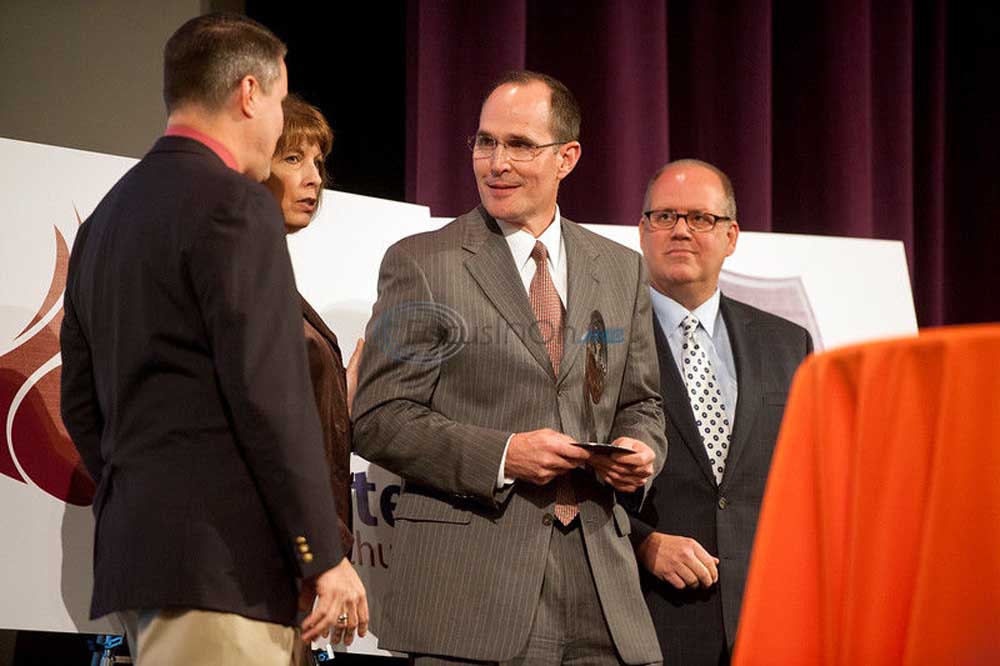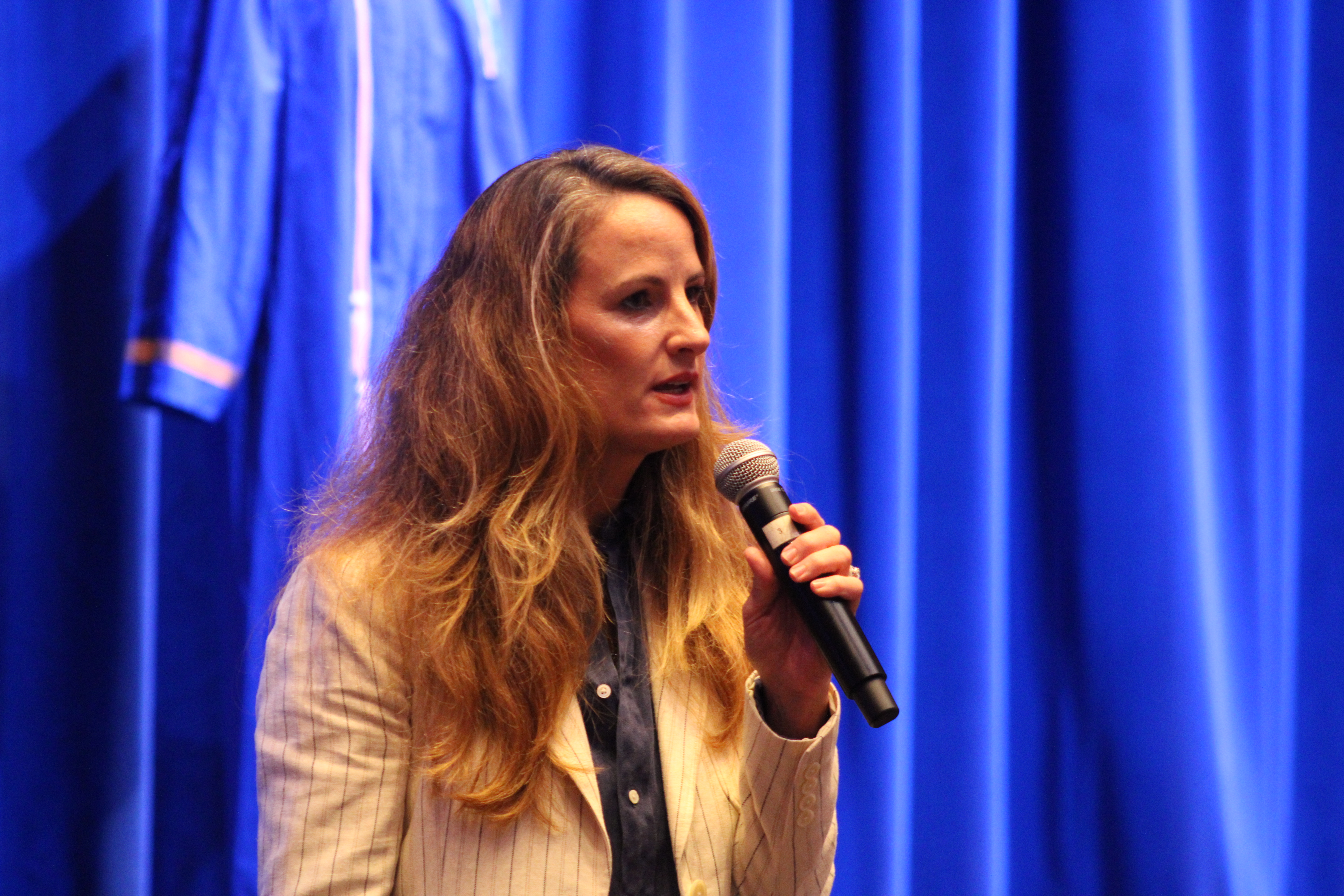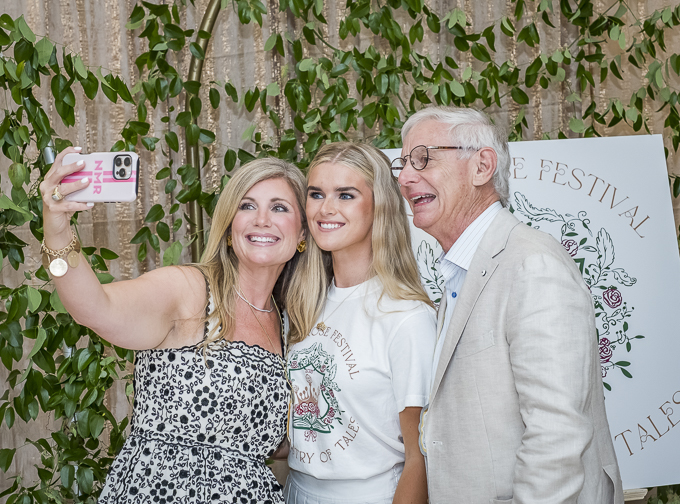Former NBA player Walter Bond speaks at luncheon
Published 10:21 pm Thursday, November 6, 2014

- photo by Sarah A. Miller/Tyler Morning Telegraph Judge Joel Baker accepts the Nonprofit Leadership Award for his dad C.C. Baker who was unable to attend the Bright Ideas Awards Luncheon Thursday Nov. 6, 2014 at Green Acres Baptist Church in Tyler, Texas.
Walter Bond didn’t start one basketball game in his college athletic career. Yet the Chicago native found himself starting for the Dallas Mavericks in 1992 during his first of three seasons in the NBA.
“I was one of the best basketball players in the world that you never heard of,” Bond told a crowd of about 150 during his first of two speeches Thursday at the Bright Ideas for Leadership and Success Conference at Green Acres Baptist Church’s CrossWalk Conference Center.
Trending
Bond said it was his sound fundamentals that enabled him to make it to the NBA and he transferred the same focus and work ethic to his second career as a motivational speaker. He is now one of the most sought after in his field worldwide, he said.
“I understand that peak performance is a process,” Bond said. “Whoever you are today is a point of reference.”
Bond served as the keynote speaker during the event’s luncheon and as one of four speakers during the morning sessions. About 300 people attended the luncheon.
The event served as an opportunity for nonprofit and for-profit leaders to learn about best practices and other ways they can move themselves and their organizations forward.
The East Texas Center for Nonprofits, which put on the event, also presented three awards.
Southside Bank received the Corporate Citizen Award; Vicki Harvey received the Founders Award and C.C. Baker and Lenola Wyatt-Tutt received the Nonprofit Leadership Award.
Trending
Bond said as a bench player at the University of Minnesota, he asked his coach what he needed to do to make it to the NBA. The reply? Lose 20 pounds and knock down 3-pointers. So Bond went to work, taking 500 shots daily to accomplish his dream.
He offered multiple tips for becoming excellent leaders. First, leaders must decide who they are going to listen to, because that voice will have a huge effect on their performance, he said.
Once a person finds success, they must avoid crossing from confidence to arrogance.
Likeability is key to the success of an individual and their organization. Likeable people attract other people and are more apt to receive mercy when they mess up, he said.
“There’s no benefit to not being likeable,” he said. “Why is Oprah a billionaire? She has likeability that’s off the chain.”
He said it’s important for professionals to look like success by dressing sharply, being well groomed and carrying themselves with confidence.
Connecting with people rather than just communicating with them is key.
He said the Girl Scouts are the greatest salespeople on Earth because “we know them, we like them and we trust them.”
Finally, he said, the keys to becoming a peak performer are to think, to execute and to dominate.
Those steps enabled him to reach peak performance in two professions: the NBA and motivational speaking.
Prior to Bond’s message, Dave Anderson and his father, Gen. James L. Anderson, as well as Jack Smalley spoke.
The Andersons, who are with Anderson Leadership Solutions, spoke about leadership as learned at the United States Military Academy at West Point, in the U.S. Army and in the business world.
Gen. Anderson said leadership is a blend of competence and character.
Anderson said an organization’s leaders must know what their organization stands for and what they value.
“Our duty is to act on our moral obligations,” Anderson said. “When you do your duty, you don’t have any buts. You do it because it’s the right thing to do.”
Smalley, who is with Express Employment Professionals’ international headquarters, shared five competencies that define super hero leaders. These are: accountability, ownership, influence, consistency and integrity.
Gina Anderson, director of the East Texas Center for Nonprofits, said her hope was that participants took away “two or three really practical things that they can go start tomorrow.”






